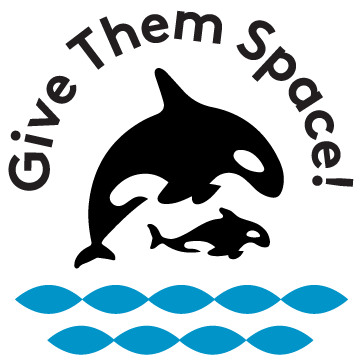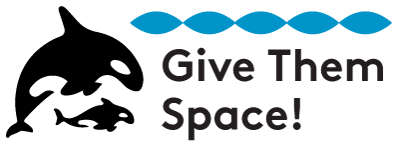
Take Action
Each of us has a role to play in the recovery of the southern resident orcas.
To recover the orcas we need to restore salmon, reduce toxins, and reduce noise and disturbance around them. Individual actions matter - the choices we make in how we live our lives has an impact on whether the whales will survive. Here are some things you can do right now to help the whales.
Report Whale Sightings to Whale Report
If you see a whale, report the sighting to Whale Report via app or website. That's the fastest and most reliable way to let large vessel operators know that whales are in the area, and gives them a chance to slow down or take other evasive measures.
Whale Report sightings are shared real-time with large vessel operators (e.g., container ships, tankers, and ferries) and WDFW Enforcement, but not with the general public.
The app is produced by Ocean Wise, and can be downloaded for free on iTunes or Google Play. (If you already share your sightings with a local network, keep doing that too. This is meant to supplement, not replace, existing information flows.)
The more sightings that are shared with Whale Report the safer the whales will be.
Everyday Actions
Use organic products in your home and gardens. Toxic chemicals can end up in Puget Sound, polluting the food chain and bioaccumulating in orcas.
Walk, bike or bus instead of drive. Reduce the oil and other contaminants that get washed into Puget Sound as surface water runoff.
Plant native plants. Plant native plants to slow down and filter rainwater. Convert your yard to a Rain Garden!
Participate in habitat restoration projects. Southern resident orcas rely on salmon that comes from the Sacramento, Klamath, Columbia/Snake, and Fraser Rivers, and central Puget Sound. Find a group near you and help repair and restore salmon habitat., to benefit salmon and orcas too!
Participate in beach cleanups.

